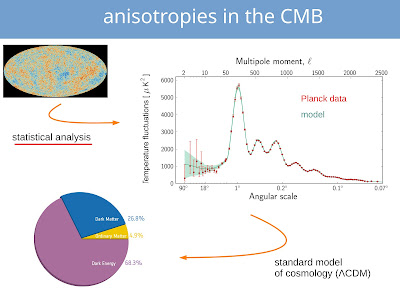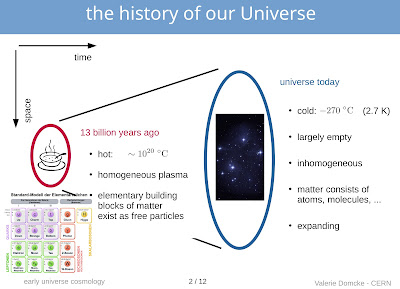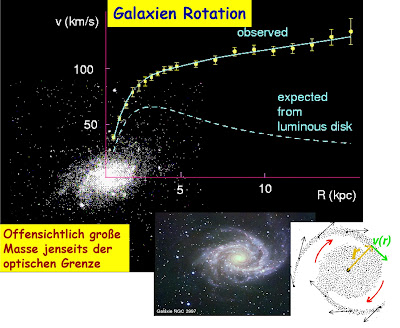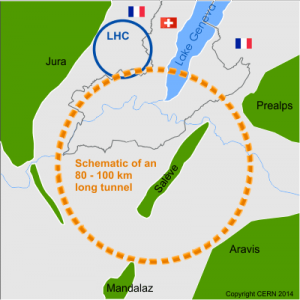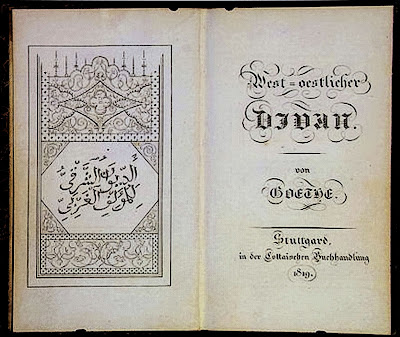In Weimar, around the turn of the 19th century,
Christoph Martin Wieland
formed the quadruple star of the German Classic with
Goethe,
Herder, and
Schiller. Wieland's literary work is no longer read, although
Jan Philipp Reemtsma, in his biography of Wieland, calls him the inventor of German
literature.
In Wikipedia, we read, "Wieland is best remembered for having written the
first
Bildungsroman (educational novel)
Geschichte des Agathon ... and ... Wieland's thought was
representative of the cosmopolitanism of the German Enlightenment, exemplified
in his remark
k: 'Only a true cosmopolitan can be a good citizen.'"
Reemtsma's Wieland biography is an opus magnum of 950 pages. It took Red
Baron several weeks to finish the book. The book is a masterpiece of the
German language. Once you start reading, you cannot easily stop because
of the book's content and style.
Reemtsma advocates "learning to
read Wieland's work again and thus gaining a sense for the perception of
specific beauties in his writings. In addition, it should show the singular
role Wieland's work played in a particular epoch - so singular that the
subtitle "The Invention of Modern German Literature" is probably
justified."
It is impossible to describe Wieland's biography in one blog. So Red Baron
will point out a few highlights, quoting Reemtsma ("in quotes") and citing
some of Wieland's original texts ("
in italics"). Surprisingly, many of
these texts are still relevant today. The snippets will underline the validity
of the statement that educated people in the 18th and 19th centuries were true
cosmopolitans.
They communicated all over Europe with handwritten
letters, where languages were never a problem. All of them knew Latin, and some
had studied Ancient Greek. Modern languages like French, English, or Italian
were no hurdle. Today, we would say those people were
gut vernetzt (well-networked). They profited from their European
contacts in a win-win situation.
Wieland, professor in ErfurtLet's start with Wieland's appointment as professor:
"On
January 2, 1769, Wieland was informed by Elector
Emmerich Josef from Mainz
that he had been entrusted with '
the professorship of Philosophiae primarium at the University of Erffurth,
with an annual salary of five hundred Reichsthaler in money, together with
two Malter* of grain, two Malters of barley and four cords of wood.'"
*One Malter differed from place to place, but in the Erfurt region, it was
130 liters, corresponding to about one barrel.Salaries were low, so additional goods in kind were common,
although Wieland did not mention beer or wine.
"He disliked those
studying* which is said to have moved
Fichte
somewhere to the sarcasm, 'Yes if they would' - i.e., study)
Heaven forbid that my bones do not have to lie in the country where my fate
has led me! What people, what minds, what manners, what crudeness, what lack
of spirit, heart, and taste! I have to educate them to be human beings,
these people!' However, such complaints about student behavior can be found everywhere in
Germany. Over time, everything settled down; he liked them, they liked him,
and Wieland no longer despaired of his educational mission."
*In the 18th century, students were called 'those studying.' Nowadays, the
term 'those studying' has turned into German gender madness. Because the
form Studenten is masculine (female students are
Studentinnen), the clumsy form for both genders,
Studierende (those studying), is used
Anna Dorothea HillenbrandIn his new position,
Wieland had to be married. He writes, "
So be it as it may, I have taken a wife, or rather, a little wife, for she
is a small, though in my eyes quite a nice and amiable creature, whom I have
had my parents and good friends, I don't really know how, lay near to me.
That's how it is; I'm satisfied, as are my fellow citizens, for they don't
like it when their superiors are unhitched."
The History of AgathonReemtsma states,
"As a narrator, Wieland uses the prose forms of anecdote, fairy tale, story,
novella, and novel. His beginnings are the stiff, didactic, highly overrated old-school
Bildungsroman' Agathon.' "
Still, "Lessing
called Wieland's 'History of Agathon' the 'first novel for readers of
classical taste.' With it, the novel became a generally recognized literary
genre in Germany."
Agathon left its mark on German philosophy like
no other. The motto
sapere aude (dare to be wise), which
Kant
declared to be the motto of the Enlightenment, comes from the novel. Agathon's
motto is
Quid Virtus, et quid Sapientia possit / utile proposuit nobis exemplum
(What virtue and wisdom are capable of / a useful example has shown us)."
Later, Wieland translated it as: "
What virtue and what wisdom/ are capable of, Homer gives us/ a valuable
example of in Ulysses. "Julie BondeliWieland met
Julie Bondeli
in Zürich. She was the only woman who could not only hold a candle to him in knowledge but also be superior.
"Julie Bondeli "put
all the other women Wieland met in the shade. She was an intellectual for whom
there was no place in the world where she was forced to live. She knew that.
She described herself as a 'femme philosopher' and 'Plato de jupe.' She
ironized the fact that people marveled at her by comparing her to a circus
attraction, a kind of rhinoceros."
"She noted with some amusement
that, unlike the compendia of higher mathematics, stocking work had always
remained a closed book to her."
Wieland's View of Women
"
A woman who wishes to assert her independence must regard her gender in
general as a hostile power ... with which she can never enter into a sincere
peace without sacrificing her own welfare. This, it seems to me, is a
necessary consequence of the undeniable fact that the female part of mankind
is almost on the whole earth in a state of degradation and oppression, which
can be founded on nothing in the world but the superiority of men in
physical strength; since the advantages of the mind, in the exclusive
possession of which they seek to place themselves, is not a natural
prerogative of their gender, but one of the usurpations of which they have
arrogated to themselves by virtue of their stronger bones. Among all people, the rougher the men, the unhappier the condition of women is. Still, even among polished nations and among the most educated of all, women
are treated by men in general either as slaves to their needs or as
instruments of their pleasure. The most beautiful of them would be very
stupid if she thought the least of the splendor or number of her pretended
worshippers and slaves and could conceal from herself what the masters have
done in the deceitful game that they play with the women's vanity and
pleasure."The Adventures of Don Sylvio Once
Wieland had finished the History of Agathon, "he immediately began to vary his
style most charmingly: the 'Don Sylvio' and the 'Danischmend' are
already overflowing with the most spirited stylistic artistry."
"In
the Adventures of Don Sylvio, Wieland has finally set himself free. Even Julie
Bondeli, who was rather dissatisfied with the novel's jokes and quite unhappy
with its slippery bits, stated what
Friedrich Nietzsche
would go on to say a hundred years later in a once-for-all dictum, 'No one
writes such good German prose as Christoph Martin Wieland.'"
ShakespeareWhen a Shakespeare translation is mentioned in Germany today, it
is
Schlegel-Tieck's. But before that, Wieland had already successfully translated Shakespeare's
plays. In this process, Wieland, l
ike Luther 250 years before, became a creator of German expressions. Nowadays, these words are used as
if they had always been there. The phrase Abschied nehmen (to take leave) or Steckenpferd (hobbyhorse) is of Wieland/Shakespearean origin, and many more."
Here is more:
cold-hearted
kaltherzigcrab-like
krebsartigdeclaration of war
Kriegserklärungeveryday work
Alltagsarbeitdeath voice
Totenstimmegrief-stricken
kummerbeladenheroic figure
Heldengestalthoney-dripping
honigtriefendhook-nosed
hakennasiginfant age
Kindesalterlunch time
Mittagsessenszeitmilkmaid
Milchmädchenpot-bellied
schmerbäuchigsafety clause
Sicherheitsklauselsharp-tongued
scharfzüngigspleen
Spleenweary of life
lebensüberdrüssigwidow maker
Witwenmacherwinter tale
WintermärchenWord breaker
Wortbrecherworld
literature
Weltliteraturworld ruler
WeltherrscherThe New AmadisAnd in
Der Neue Amadis, Wieland presents two more new and widely used German
idioms.
"All the others (daughters and knights) are also
narratively forced into pairs at the end, each pot gets its lid*, as the last
line says."
*Jeder Topf bekommt seinen Deckel"With the 'beautiful soul'*, which here forms the keystone of the
cupid's construction, Wieland invents a German word for the Greek term
'καλοκἀγαθία' (the term for a Greek ideal of physical and spiritual excellence
('beauty and goodness')), which henceforth makes a career for itself."
*schöne SeeleA Nation Favored by the MusesIn his
beginnings, "Wieland sees German literature as the whole world, and the whole
of Germany saw it around, say, 1750. And now the whole world and the whole of
Germany see it where the poets of the middle of the century wanted to see it,
namely in terms of standard, sophistication, and poetic intelligence, where
France, Italy, and England had long been."
This belated recognition
was mainly due to Wieland, who proudly writes, "
Especially since the French have for some time been convinced that we
Germans, à l'heure qu'il est, are the only nation in Europe favored by the
Muses."
Der Teutsche MerkurIndeed, since 1773, Christoph Martin Wieland published and edited
a literary magazine,
Der Teutsche Merkur, modeled on the French
magazine
Mercure de France. Wieland "used the
Merkur as an organ
to advance the Enlightenment and to provide a platform to support literary
taste."
"He is the stupendously hard-working publisher, editor, and
author of the Teutsche Merkur, which is published unflinchingly quarterly and
is the most highly regarded literary and political journal in Germany," that
was also read all over Europe.
From 1790 to 1810, the journal was
renamed
Der Neue Teutsche Merkur.
"Wieland's work soon
became tiresome and too much, '
But I too ... am unnoticedly being overtaken by the winter of life, and if
I am less aware of it, and still have enough energy and activity to imagine
myself younger than I am, the cause of this is probably merely my domestic
bliss and the teeming, sprouting and life of so many young creatures around
me.'" From 1798 to 1803, Wieland lived on his manor in Oßmannstedt, which he had bought from his royalties. Here, he enjoyed country life, raising animals
and 13 children.
"In 1799, Wieland appointed
Karl August Böttiger
as editor in charge but remained publisher. He repeatedly considered
discontinuing the journal, but at the end of 1810, the time had come: after 38
volumes, the last issue of what had long been Germany's most important
literary and political journal was published."
GoetheOn Goethe, Reemtsma writes, "But did he always make the most of
his talents? - Wieland is not alone in his doubts - to this day, people argue
about the place Goethe gave to his speculations on the physics of colors and
what rank posterity should give them. Wieland also takes careful note of this
aspect, refrains from passing judgment, but asks about the public reaction
'.
.. so I ask you to tell me how Goethe's great work on light and colors,
especially its polemical part, is regarded by the scholars in Leipzig.
Newton's admirers will shake their heads violently and cringe. He has stung
a great wasp's and hornet's nest."
SchillerSchiller
held the chair of history at the University of Jena, and "German historiography only began with his 'History of the Thirty Years' War." This assessment is
rarely found in self-thematizations of German historiography; in fact, not at
all. Schiller's historical works are seen as a poet's excursions into terrain that is essentially foreign to him, or, more precisely, terrain that does not yet exist. If one were to take a closer look, one would be surprised
to discover that he opened up this terrain."
Herder"Herder came to Weimar because Wieland and Goethe
sought him out. Herder stood for a new kind of philosophical theology or
theological philosophy, a new idea of the connection between literature,
poetry, and historical time."
"Pope Benedict XVI has always
believed that the
sola scriptura doctrine leads to philologists and
historians being left to judge the truth of Scripture, ultimately leading to a
hopeless secularization. This is precisely what Wieland welcomes, celebrating
Herder's writing as a '
new transfiguration' of Christ and his '
new resurrection,' '
Everything, it seems to me, is ripe for Christianity to either cease to be
visible in the world or to emerge victorious in a new, i.e., in its pure and
true form.'"
"
Through the falsification of the teachings of Jesus of Nazareth (and the
legend of his resurrection), Christianity had risen to become an initially
popular and then dominant religion, and it was now time to uncover the
ethical core again through philological and historical (and philosophical)
criticism of revelation. Which, however, turns out to be astonishingly
trivial: 'Children, love one another,' says the old Johannes in Lessing's
work - and that's all he needs, he says."
Red Baron listens to The Beatles.
Kant"If a philosophical direction develops a special language, then
it misses what, in Wieland's eyes, constitutes or should constitute
philosophy: To be a doctrine of right living, for such a doctrine must
necessarily include not speaking elite jargon, '
Him I accept, but with his philosophical Rothwälsch
(thieve's cant),
which is neither German, nor can it be translated into any language without
destroying it, Never!'"
Wieland should not complain here. After all, he was spared
Heidecker.
Seume"Wieland called
Johann Gottfried Seume
a '
true cynic,' and such a person was the '
most genuine man and the true sage ... Ancient Greece had barely half a
dozen of them within 500 years, and in our days Seume is the only one I at
least know.'"
About the German Language and Printing"The prejudice that the German language was 'less poetic' due to
its lack of vowels (compared to Italian or French) was for a long time
something of a poetological certainty, which Wieland felt was his duty to
refute. An open-minded reader would have found '
the language, which Emperor Charles the Fifth (certainly not a German,
although king in Germania) only wanted to neigh with his horse, is to a very
high degree musical if he had been able to read and fully feel the best
songs of Hagedorn, Gleim, Utz, Weisse, Jakobi, Bürger, Hölthy and
others.'""Wieland always spoke out against the scarification of German
through eradicating foreign words. Wieland polemicized against a style of
language and thus of thought to which he also had other objections."
"Sometimes
Wieland advocated using the
Fraktur (Gothic) typeface when he wrote to
one of his printers: '
I am delighted that you also favor German letters. I will not be talked out
of the fact that the German letters are more appropriate to our national
character and much more pleasing to the eye than the Latin ones. 'Probably because of his foreign readers, he refrained from printing his
Sämmtliche Werke in
Fraktur."
Parapsychology"Magnetization was in vogue. Reports of spiritual phenomena were
read with pleasure and belief. Mischief and seriousness mingled. This was
funny and disturbing.
Lavater
measured skull shapes, Goethe tried to refute Newton and show that light did
not 'refract' in the prism,
Swedenborg
had made proselytes, and Kant did not think it idle to exercise his pen here,
in 1766 his 'Dreams of a Visionary' appeared, in which he speaks of
'hypochondriacal vapors, old wives' tales, and monastic miracles.' In 1781,
Wieland wrote '
On people's tendency to believe in magic and ghostly apparitions' in the
Merkur and included this essay in his Sämmtliche Werke."
"This
tendency of the time could be viewed with political concern; one thinks of
Schiller's '
Geisterseher,' of Goethe's '
Der Groß Cophta,' which
was dedicated to the machinations of Cagliostro and the unfortunate '
Affair of the Diamond Necklace' (in which Cagliostro was involved), a dreary scam."
Vaccination"An interesting topic in Wieland's correspondence that occupies
quite a bit of space is inoculation. In 1782, Wieland had his children
vaccinated against smallpox by the physician
Christoph Wilhelm Hufeland, and later his grandchildren were also vaccinated."
"In 1788, he
advised his son-in-law
Reinhold, '
We cannot disapprove of your concern about the recommended inoculation of
Caroline: However, since the danger of natural smallpox, from which she
cannot be protected in any other way than by inoculation, is incomparably
greater,' he should have the vaccination carried out."
"The problem,
which was discussed in Germany in 2021/22 under the term vaccination
breakthrough, was already dealt with in June and December 1775 in the
Teutscher Merkur under the title '
Concerning the case of natural smallpox returning after previous
inoculation.'"
Wieland's Concerns About Democracy
"Wieland's novel Aristipp reflects his skepticism about the idea that the
creation of constitutions is essential. Without capable and responsible
politicians, the best constitution is useless - (In his Aristipp). Cyrene is
lucky to be governed by the best politicians in the city at the moment, but if
these times pass, the constitution, although cleverly devised, will collapse.
The people, Wieland has reasoning his Aristipp, cannot govern themselves, but
are governed by people who are usually just as incapable of doing so."
"The
trial and condemnation of Socrates, of which Aristipp learns in a letter, are
for him, however, proof of the unsuitability of democracy as a form of
government: demagogues could incite a popular or, in this case, a judicial
assembly to the greatest follies. Aristipp takes the statement by Dionys, the dictator of Syracuse, that Socrates had nothing to fear from him and would have had a peaceful old age, as an opportunity to renew his earlier praise of Dionys's wisdom and energy - if it came down to it, he would make Dionys the autocrat of all Greece. Aristipp undoubtedly shares his aversion to
plebiscitary democracies with his 'author' Wieland."
Wieland on the French RevolutionReemtsma starts by quoting
David Hume, who "once answered the question of why people tolerate authorities that
(obviously) govern, or oppress them badly: because putting up with them
(obviously) seems more advantageous than rebelling against them."
Now,
in 1789, taking the 13 States of America as a role model, the people of France
rebel against their authorities such that Wieland writes, "
I abandon myself ... to the sweet feeling of joy which must refresh the
heart of every citizen of the world who participates in the welfare of
mankind at the thought of having lived to this epoch, when the most
cultivated nation of Europe gives the world the great example of legislation
which, founded solely and exclusively on human rights and true national
interest, is always the clear expression of reason in all its parts and
articles ...".
However, he added an admonition: "
Whatever constitution is enacted, it should consider the following
principles of law and state philosophy: Separation of powers, guarantee of
individual property, general taxation, and acceptance that there are
irrevocable differences in status."
"
The Republic or death and destruction! was and is the watchword of the
Jacobins and Sankülots."The party was over. After the excesses in France, Wieland
resigned, "Mankind has made an
'instructive experiment at the expense of the French, which will at least
teach all other peoples that any still-suffering state is infinitely better
than a revolution without a head, without a plan, without means, without an
end, in a word, without reason.'"
"
Had it stood with me, neither the guilty nor the innocent would certainly
have been hanged on lampposts without justice and judgment, no man's house
would have been plundered, no good nobleman's or even a peasant oppressor's
castle would have been set on fire, and the good King Louis XVI's Majesty
would have been hounded to Paris in a far more mannerly way than
unfortunately happened on October 6 of last year (1791) ... But it is,
nevertheless, absolutely impossible for me to be less convinced, for the
sake of all those real and fictitious atrocities of which the Parisian mob
... may have been guilty in the course of the last ten months, that the
Revolution was a necessary and salutary work, or rather the only means of
saving and restoring the nation and, in all probability, of making it
happier than any other has ever been."
Buonaparte
In a fictitious dialogue, Wieland has one participant suggest a dictator for the
revolution-shaken France:
"It's
- don't get too excited! - it is - because they no longer want a king" and
"their constitution of the year 1795, which after the tremendous rupture it
received on the 18th of Fructidor* cannot last much longer anyway, the
better to throw itself into the fire and elect a dictator."
*Meant is the aborted coup d'état of 18 Fructidor in the Year V (September
4, 1797)"
For many reasons, however, he must not be a true Frenchman, at least not
from an old and well-known family, and if he even had a foreign name, it
would be all the better ... The most extraordinary thing about the matter is
that you do not need to look for this man, for he has already been found by
a stroke of luck, which may well be called unique in its kind."
"
Buonaparte, then?"
"
Buonaparte, dictator of the great Nation!"
Wieland's prediction had reactions.
"On January 25,
1800, an article entitled 'Prediction concerning Buonaparte' appeared in the
St. James Chronicle. It stated that, in all probability, the article in the
Merkur, penned by a certain Weiland (!!), had been inspired by 'the
Illuminati, with the intention of ... making their hero acceptable to the
French nation. All this cannot leave the slightest doubt,' and Weiland's
dialog was a 'secret, but well-understood code by all adepts of this horrid
system.'"
Freedom of the Press"In the
Teutscher Merkur of September 1785, Wieland summarized his credo: '
Freedom of the press is the concern and interest of the whole human race.
It is mainly to this freedom that we owe the present degree of
Enlightenment, culture, and refinement of which our Europe can boast. Rob us
of this freedom, and the light which we now enjoy will soon disappear again;
ignorance will soon degenerate into stupidity, and stupidity will again
abandon us to superstition and tyrannical despotism.'"
The Meeting with Napoleon at Weimar

|
|
Napoleon, who he may have looked like according to AI (©Facebook)
|
"
October 6, 1806, there was a hunt in the morning with tents on the
Ettersberg and the usual number of 47 deer and other animals, then a table
in the palace: 'This afternoon in Weimar is the highest visible expression
that Napoleon's power has ever found. For there they all sat at a separate
table in a semicircle around him, the Tsar and the German kings and princes
created and dependent on Napoleon, at the ends of the horseshoe Carl August
and his son, the Hereditary Prince, between them Bavaria, Saxony,
Württemberg, Westphalia, Oldenburg, Mecklenburg, a Prince of Prussia, Grand
Duke Constantine, Duchess Luise, her daughter and also Talleyrand, the
Prince of Benevento. There was also Dalberg, the primate prince, who was the
last to represent the ecclesiastical rulers of Germany who had been swept
away by Napoleon. Then we went to the theater. Voltaire's 'La mort de César'
was performed. Followed by the Ball in the Castle," which Wieland did not attend.
"
But Napoleon asked for me twice and seemed surprised not to see me at the
ball, as he had seen me in the play in a box quite close to his seat - the
Duchess let me know this pp., and now there was no other advice than to put me
in the court carriage that was sent to me and - in my usual accouterment, that
is a calotte on my head, unpowdered without a sword, and in cloth boots
(decently costumed, by the way) to appear in the dance hall."
When Wieland appeared, Napoleon immediately took him under his
wing, probably also because Wieland spoke passable French.
"Today's
play had turned the conversation to Julius Caesar, and Napoleon declared him
to be one of the greatest minds in the whole history of the world; indeed, he
added, he would be the greatest without exception if he had not made a single
but quite unforgivable mistake. I pondered in vain what that mistake might
have been, but did not want to ask; Napoleon, however, who could read the
question in my eyes, immediately continued, 'You want to know this mistake?
Caesar had long known the people who had put him on the side, and so he should
have put them on the side. - If Napoleon had been able to read my soul, he
would have read, You will not let yourself be guilty of this mistake!" History reports that Napoleon was not squeamish when it came to eliminating
his real or supposed opponents.
"Wieland was very annoyed by the copperplate engraving of the encounter in the
Weimar Palace. He called it a '
disgraceful bungling of a vivid depiction of this unfortunate Napoleon and
Wieland! ... as if it had been painstakingly designed to ridicule the
Emperor and myself - me, who stands opposite the Emperor without a hat, in a
white gillet and in gaiters, and makes a gesticulation with both hands as if
I had much to object to what he says. The bungler turns the Emperor into a
good-natured, invalid sergeant, prating of his great deeds, who cuts such a
miserable, pompous figure even to the poor pedant that one does not know
whether to laugh or cry.'"
Two years later, at the meeting of princes in Erfurt,
Napoleon awarded Wieland the Order of the Legion of Honor First Class and Tsar
Alexander the Order of St. Anne Second Class. His reaction was, "
Why all this? I would have preferred a modest pension."
Wieland on Getting Old"About a year
before his death, in February 1812, Wieland writes an astonishing letter: '
In such a protracted, though not very boring life as mine, nothing is more
natural than that of all the millions of strings to which we cling in life,
one after the other breaks without being noticed, and so when we linger too
long, it finally comes to pass that we cling to almost nothing, desire
little or nothing, hope even less, and generally regard ourselves as people
from another world, who have as much as nothing in common with the present
one, whose role has been played out, and who could therefore go their way
without the world becoming aware of their disappearance. But for my part,
when I listen to myself as quietly as possible, I must either be organized
differently from others, or I could take it as a sign that I am still
destined to experience more. The truth about me is that, although countless
threads on which I was hanging ... were torn off sooner or later, new ones
are always spinning up, which, just as unnoticed, at least up to a certain
point, involve me in life and prevent me from ever becoming indifferent to
it.'"
Red Baron goes through the same experience, but I would like to
add that these new threads are thinner than the initial ones.
**




